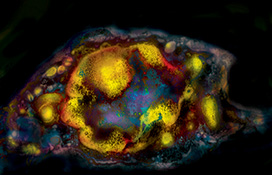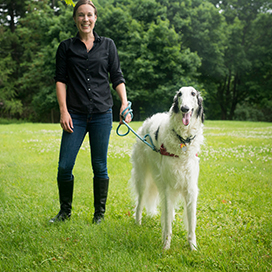Canine Allergic Disease

Baker Institute for Animal Health
235 Hungerford Hill Road
Ithaca, NY 14853
Phone: (607) 256-5635
edt42@cornell.edu
Just like humans, dogs can suffer from allergies, including food allergies and atopic dermatitis. Allergies in dogs are associated with uncomfortable symptoms, such as itching, rashes, and gastrointestinal distress. Diagnosing and treating allergies in dogs can be challenging, and studies have clearly shown that canine allergic disease is associated with a reduced quality of life for dogs and their owners. Therefore, there is a need to develop better management strategies for canine allergic disease.
Our immune system normally protects us from infection by causing inflammation that limits pathogen growth and replication. Allergic diseases result when the immune system becomes dysfunctional and causes inflammation in response to harmless food or environmental substances. Recent studies in mice and humans have led to the characterization of many of the immunological pathways that contribute to the development of allergy in these species. This knowledge has been used to develop new diagnostic tests and drugs to treat allergy in humans. However, whether all of the same immunological pathways are engaged in allergic dogs and whether new drugs could be developed based on these pathways to treat canine allergy remain unclear.
The Tait Wojno laboratory is currently collaborating with the Cornell University Hospital for Animals and its Dermatology service on a project investigating the immunological pathways that lead to allergy in dogs. These studies will hopefully contribute to a better understanding of canine allergic disease and will provide a basis for the development of new diagnostic tests and drugs to improve the management of allergies in dogs.




